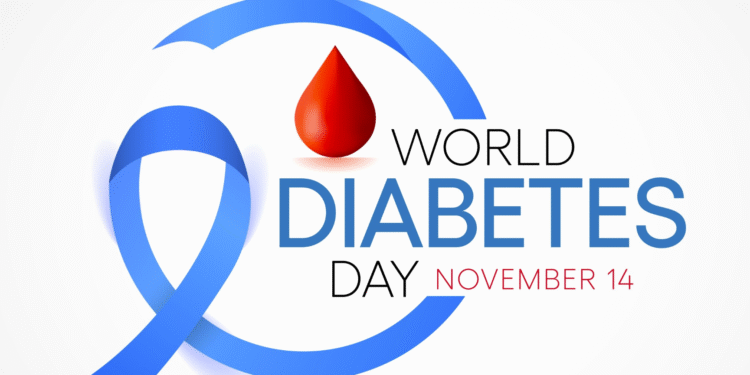World Diabetes Day on November 14 is more than a date on the calendar—it’s a reminder that prevention, early diagnosis and effective treatment of diabetes can save lives and limbs. New global estimates underscore the urgency: the International Diabetes Federation (IDF) reports about 589 million adults (1 in 9) are living with diabetes today, with projections reaching 853 million by 2050 if trends continue. Diabetes was linked to an estimated 3.4 million deaths in 2024 and at least USD 1 trillion in annual health expenditures. Across the UN system, the warning is clear. A major WHO-supported analysis found adult diabetes prevalence doubled from 7% to 14% between 1990 and 2022, and nearly 60% of adults over 30 with diabetes were not receiving medication in 2022—especially in low- and middle-income countries. Those treatment gaps translate into avoidable complications: heart disease, kidney failure, blindness and amputations.
For Antigua and Barbuda, the regional picture matters. PAHO notes the prevalence of diabetes rose from 7.7% in 2000 to 11.5% in 2014, and overweight/obesity affected 62.7% of adults in 2022—a key driver of type 2 diabetes risk. Tackling weight, nutrition and physical activity is therefore central to any national response. World Diabetes Day 2025 also highlights “Diabetes and the workplace,” emphasizing that people spend many waking hours on the job. Employers in Antigua and Barbuda can make fast, practical changes: healthy canteen options, water-first policies, short movement breaks every hour, step-friendly campus design, and partnerships for on-site screening for blood glucose, blood pressure and cholesterol. With the right supports, people with diabetes can live well at every age—the WHO and IDF repeatedly stress the power of self-care, education and access to essential medicines.
Inclusion is non-negotiable. Globally, 1 in 6 people (1.3 billion) live with a significant disability, and WHO notes persons with disabilities face higher risks of conditions including diabetes and significant health inequities. In practice, that means screening days must be wheelchair-accessible; educational talks should include sign-language interpretation and plain-language materials; and clinic hours should work for caregivers and people with mobility challenges. Antigua and Barbuda’s diabetes outreach should be designed with, not merely for, persons with disabilities. Education is a powerful form of prevention. UNESCO’s Global Education Monitoring reports show that too many learners with disabilities are still excluded from quality, inclusive schooling—fewer than 10% of countries have laws that fully guarantee inclusion, and children with disabilities make up a significant portion of those out of school. Literacy in health, food skills and physical education begins in classrooms; when learners with disabilities are excluded, we undercut long-term diabetes prevention for the whole society. Ministries of Education, Health and Social Transformation can align on inclusive school meals (less sugar, salt and ultra-processed foods), daily movement, and routine health checks. So what can each of us do today in Antigua and Barbuda?
Prevent diabetes: 1. Choose whole foods more often—vegetables, beans, local fruits, whole grains, fish—while cutting sugary drinks and ultra-processed snacks.2. Move more—150 minutes of moderate activity weekly, plus muscle-strengthening twice a week. Active minutes can be broken into short bursts throughout the day and adapted for all abilities.3. Manage weight and sleep; reduce tobacco and alcohol use. 4. Ask your pharmacy or clinic about risk assessment and community programs. Detect it early:1. If you’re 35+ or have a family history, overweight/obesity, high blood pressure, past gestational diabetes, or you live with a disability that limits activity, request fasting glucose or HbA1c tests. Screen earlier in pregnancy. 2. Use World Diabetes Day to check your numbers—and encourage a coworker to do the same. Treat and live well with diabetes: 1. Follow the care plan—diet, activity, and medicines (including insulin or oral agents) as prescribed. 2. Keep up with foot checks, annual eye exams, kidney tests and blood pressure control.3. Ask about workplace accommodations: flexible breaks for glucose checks or meals, cool storage for insulin, and safe spaces for activity.
Health systems also have homework. WHO’s latest facts stress expanding treatment coverage, affordable diagnostics and medicines, and integrated primary care that doesn’t force people to navigate multiple clinics. PAHO’s country profiles help track outcomes such as deaths and disability-adjusted life years—evidence that can guide Antigua and Barbuda’s budget and policy choices. World Diabetes Day is a call to move—from awareness to implementation. With inclusive education (UNESCO), strong primary care (WHO/PAHO), and employer leadership, Antigua and Barbuda can bend the curve on diabetes, protect productivity, and ensure that people with and without disabilities have the chance to thrive. Prevention is possible, complications are avoidable, and treatment works—when everyone is included.
—
Joshuanette Francis
Founder and President, Good Humans 268 Inc.
Mobile: +1 (268) 789 GOOD (4663)
Website: https://goodhumans268.org/
Tel 268 727 2120 or 268 463 5674



